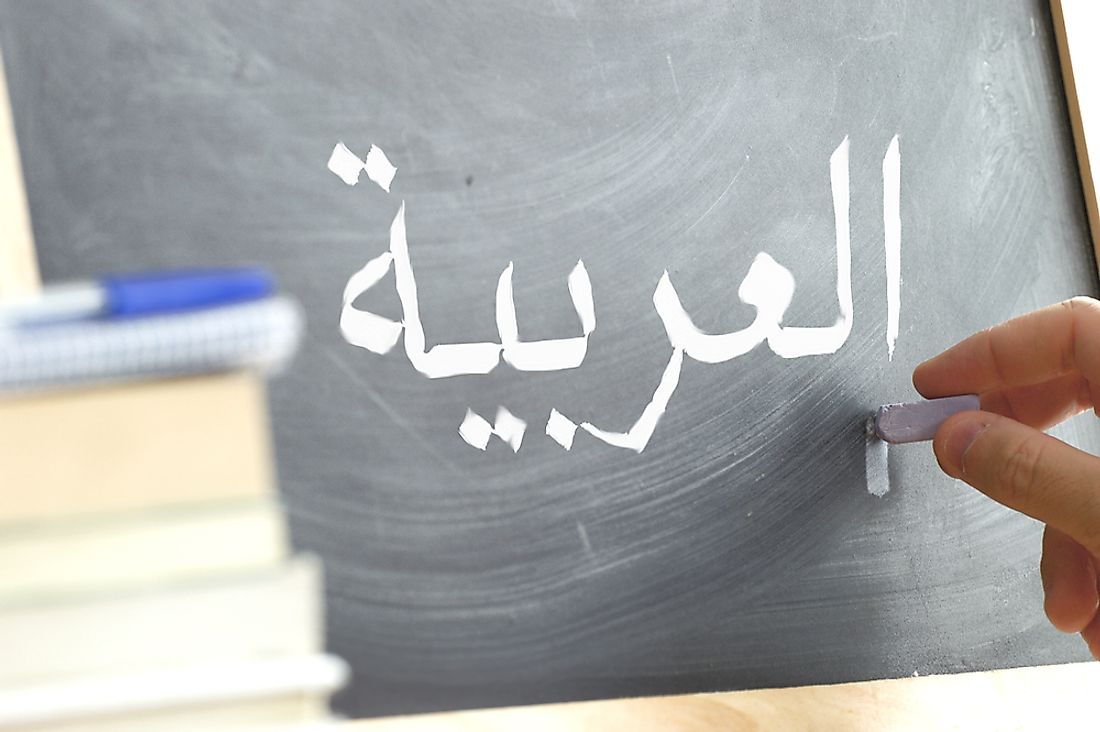What Languages Are Spoken In Sudan?

Sudan has two official languages namely literary Arabic and English. The number of languages indigenous to Sudan is estimated at 114 while there are over 500 accents in the country.
Afro-Asiatic Languages Spoken In Sudan
Arabic: The Official Language Of Sudan
Sudan's Constitution gives Arabic official status, and it is the dominant tongue in the African country. The language is used mainly in one dialect namely the Sudanese Arabic. This dialect is classified in the Afro-Asiatic family, and it is different from Egyptian Arabic. Sudanese Arabic shares similarities with Hejazi Arabic. There are notable differences in the Arabic spoken in Sudan by region. In Southern Sudan for example, a variant called Juba Arabic is more common. Over time, Sudanese Arabic has been influenced by various Nubian languages. In Sudan's western region, another Arabic dialect named Chadian Arabic is heard among the Baggara as well as other Arabized African tribes. Hejazi and Najzdi Arabic are common in the country's mid-eastern and mid-northern regions.
Beja
Two other languages in the Afro-Asiatic family are spoken in Sudan. The Beja language, also named Bedawi, boasts about 2 million speakers. The language is native to the Beja community who inhabit the Red Sea's western coast.
Hausa
The other language is Hausa which is spoken by a western community of about 80,000 inhabitants. The Tigre language, dominant in Eritrea, also has some speakers in Sudan.
Nilo-Saharan Languages Spoken In Sudan
The Nilo-Saharan family has the largest number of native languages in Sudan. This group of languages is spread from the south up to the southern parts of Khartoum.
Dinka
The Dinka people constitute the largest ethnicity in South Sudan, and they speak Dinka. The language is broken down into five dialects namely Northeastern and western, Southwestern, South Central, and Southeastern.
Nuer
The Nuer language mainly has speakers in the southeastern parts of Sudan. The Nuer people number about 1.4 million, and they inhabit the savanna and marshes of the Nile valley located in southern Sudan. The community exercises significant autonomy from Sudan's central government.
Other Nilo-Saharan Languages Of Sudan
The Fur languages are used by the Fur people of Darfur inhabiting western Sudan as well as Chad. The Masalit language is native to Sudan where it is used by the Masalit people occupying West Darfur. The Zaghawa language is heard among the Zaghawa communities of northwestern Sudan. The Temein languages constitute some Eastern Sudanic languages such as Tese, Temein, and Doni spoken in Sudan.
Nubian Languages Spoken In Sudan
The Nubian languages are spoken in Nubian communities living in Sudan. The Nobiin language has the most speakers in this family, and it is commonly used in northern Sudan. Most of the nobiin-speaking people also speak Sudanese Arabic. Another Nubian language in Sudan is the Midob language used by the Midob communities who have settled in North Darfur. Midob people are also found in Jezirat Aba as well as the Khartoum area. The Hill Nubian languages have about 63,000 speakers in the northern Nuba Mountains situated in the southern part of Sudan. Seven Hill Nubian languages have been identified, some of which have dialects. The Birgid language is now ranked as an extinct language.
Niger-Congo Languages Spoken In Sudan
The Niger-Congo group use languages also spoken in neighboring countries. The Zande language is mostly used in western Sudan being spoken by the Zande communities also present in Congo as well as the Central African Republic. The Kordofanian languages constitute six language families used in the Nuba Mountains of the Kurdufan region of Sudan. Languages classified in this group include the Kadu, Rashad, Talodi-Heiban, Katla, and Lafofa. The Fulani language has speakers in Kordofan, northern areas, and in the Blue Nile region.
English And Swahili
English has official status in South Sudan, and it is recognized as the lingua franca in regions where Sudanese Creole Arabic is not spoken. There are also plans to introduce Swahili in South Sudan in an attempt to ease the integration of the nation in the East African Community.







